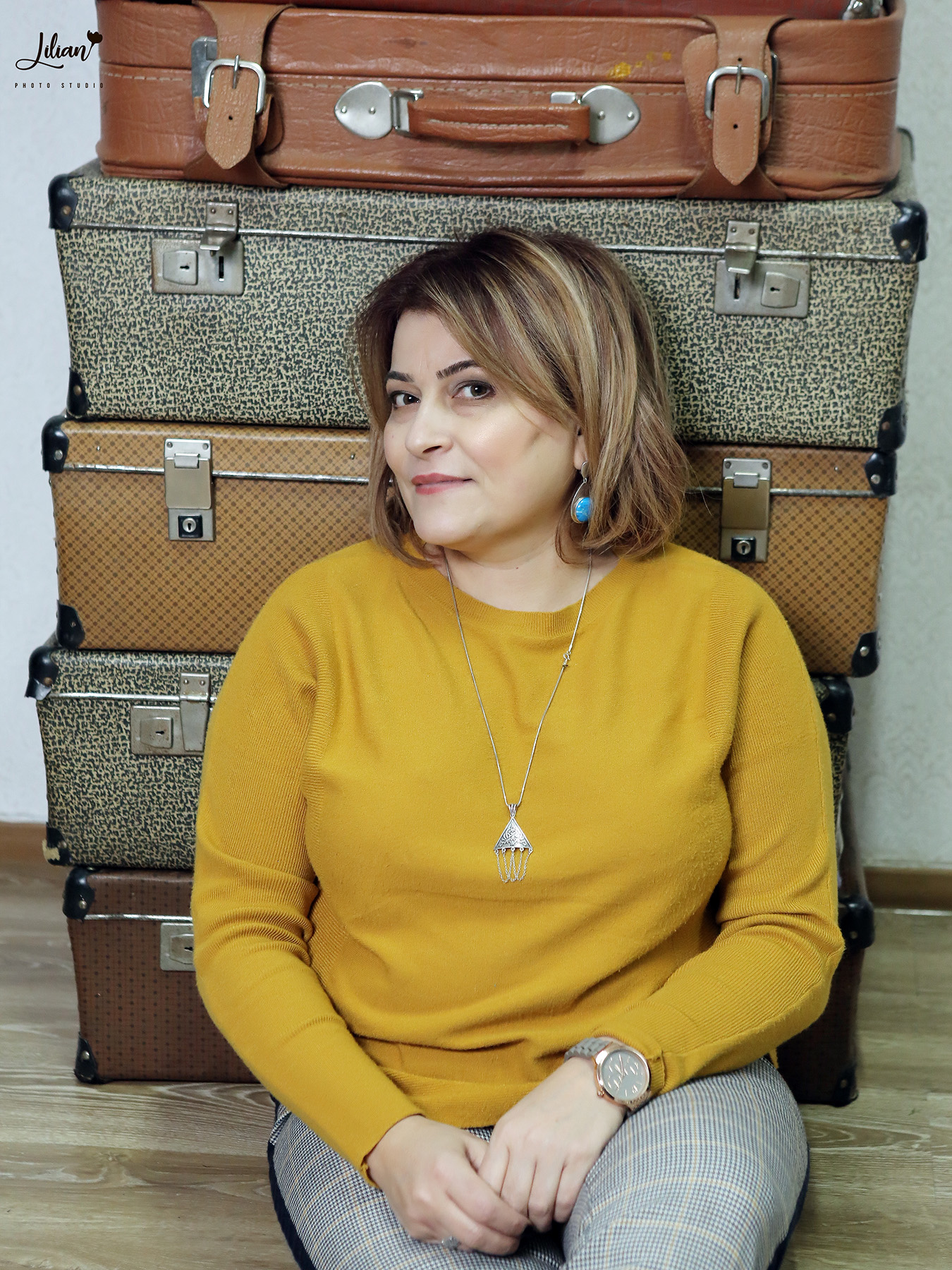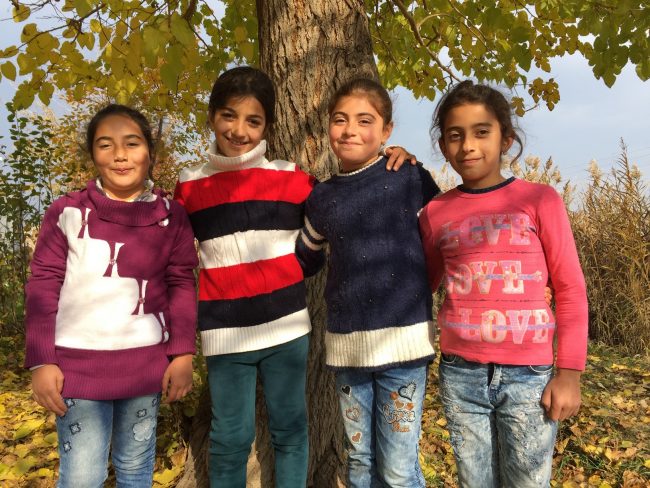
 In the Yazidi villages in the west of Armenia, many girls and boys don’t finish school. For girls, it’s ‘a great tragedy’ to be unwed by 18, while the boys must go to work. But there are some in the community challenging the stereotypes, hoping to build a better world for future generations.
In the Yazidi villages in the west of Armenia, many girls and boys don’t finish school. For girls, it’s ‘a great tragedy’ to be unwed by 18, while the boys must go to work. But there are some in the community challenging the stereotypes, hoping to build a better world for future generations.
Ester Sadoyan and Asya Orujulyan are year nine students. Ester is thinking of becoming a doctor and Asya dreams of working in a beauty salon. But in Ferik, tradition trumps education.
‘Our traditions hinder girls, they hardly finish year nine, and after that they get married. Many do so even earlier. We are a small nation, therefore we hurry to give our daughters into marriage’, Rustam Hasanyan tells OC Media.
Hasanyan teaches Kurdish language and Yazidi literature at a school in the village of Ferik, 35 kilometres west of Yerevan in Armavir Province. He is also chairman of the village, which is populated exclusively by Yazidis.
The primary school is named after Yazidi writer Rzalie Rashid Ozmanyan. Hasanyan says that after year nine, pupils are supposed to continue their education in secondary school in a neighbouring village, but often this does not happen.
The school is attended by 28 boys and 18 girls. One of the girls in year nine has already stopped attending. According to local traditions, she is considered a bride ready for marriage.
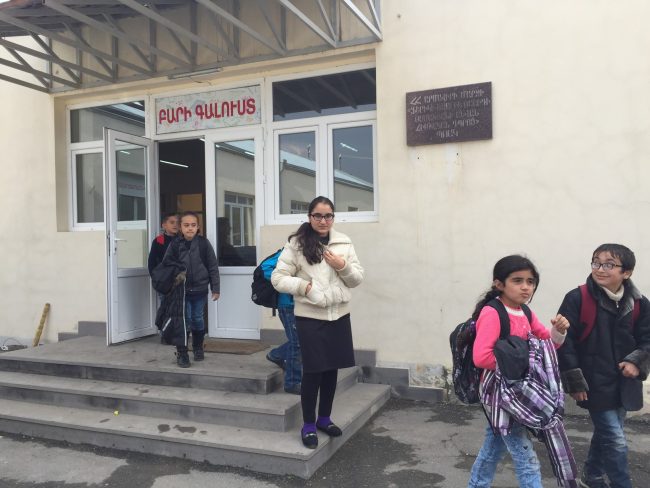
Headmaster of Ferik’s school Levon Poghosyan says he is familiar with Yazidi traditions. He says that 10–15 years ago, children would be married off when they were 15–16. It is considered a tragedy if a Yazidi girl is not married by the age of 18, he says.
‘Education of Yazidi girls in Ferik stops by year nine. When they get married, girls often drop out of school without finishing’, he says.
Last year, the National Association of Yazidis — Sinjar, a Yazidi cultural organisation, conducted a study on education in 15 rural Yazidi communities in Armenia. It showed that in 2003–2015, of the 473 Yazidi girls admitted to schools in the country, 117 dropped out before completing nine years of education, 234 completed only the ninth year, and 122 received the full 12 years of education.
A law against tradition
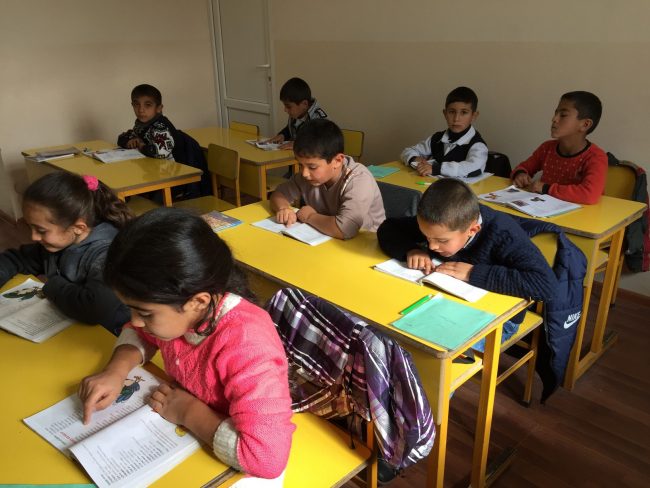
Early marriages are a major obstacle to women’s education in Yazidi communities. Like many other traditions, early marriages are considered symbols of the preservation of Yazidi ethnic identity.
Orientalist Rustam Bakoyan, head of SHAMS, a Yazidi group working on education and poverty reduction, explains: ‘the Yazidis of Russia and Europe often come and choose a daughter-in-law from the Yazidi community in Armenia. They are sure that a true Yazidi girl can be found only here, where traditions have been protected until this very day. This is one of the reasons for early marriages’.
According to the latest census in 2001, there are 40,620 Yazidis in the country. Twenty-three villages where Yazidis live compactly are located in Aragatsotn Province in the west of Armenia. The Yazidis also live in Armavir, Ararat, Shirak and Lori provinces in the north and west of Armenia, mostly in mixed villages along with Armenians.
Sixty-five-year-old Tarlan Hasoyan lives 80 kilometres from Yerevan, in the village of Rya Taza in Aragatsotn Province. She cherishes Yazidi traditions.
‘The responsibility of our women is to get married, be a good wife and mother, and take care of the family. If a husband enters the room, the woman must stand up. You cannot sit with the men at the same table, and cannot talk to your mother-in-law’, she says.
Thirty-eight-year-old Sona, a mother of four, is from the same village. Together with her mother-in-law, she decided to get her daughter engaged when she was 14. The groom was from ‘a good family’ and they did not want to lose such a chance for their daughter.
‘This is our tradition. I also married when I was 15. What should we do? Our daughter listens to us, she knows that we are right and this is how it should be. Why do we need her education?’ she says.
Not only girls are affected
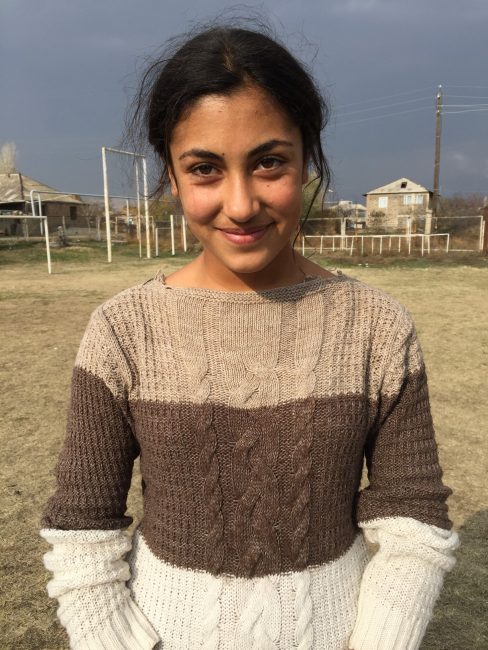
A lack of education does not only affect girls in the Yazidi community. Bakoyan claims that in the Yazidi community, boys’ right to education is also frequently violated.
‘Our community numbers 40,000; only 40 are attending higher education institutions in Armenia, which means that 0.1% of our people are receiving a higher education’, he says.
According him, boys usually marry at around 21, when they return from military service.
‘Of course there are instances when they marry even at 16–17. Armenians also had a problem with early marriages, but having a state, they started developing very fast. In our case, we are a more closed community and are afraid of assimilation’, Bakoyan explains.
Yazidis in Armenia live mostly in villages, working in animal husbandry. Parents are often unhappy if boys continue their education, because it prevents them from contributing to the household economically. Boys usually start helping their families with animal husbandry and farming from an early age, or they go to work in Russia, Bakoyan says.
‘The majority of Yazidis do not value education. For them it is important that the boys work, and help solve economic problems of their families. This is why many are sent off to Russia’, he says.
School headmanster Levon Poghosyan agrees with him. He notes boys education usually stops after year nine.
‘For [parents], it doesn’t matter if their children receive an education. I have worked in this school for so long in this community, and I cannot remember anyone going to study at university’, he says.
New times are coming?
This situation may be about to change; on 1 September, the law ‘on general education’ came into force in Armenia, according to which a 12-year education is compulsory for all students. Prior to that, only nine years were compulsory.
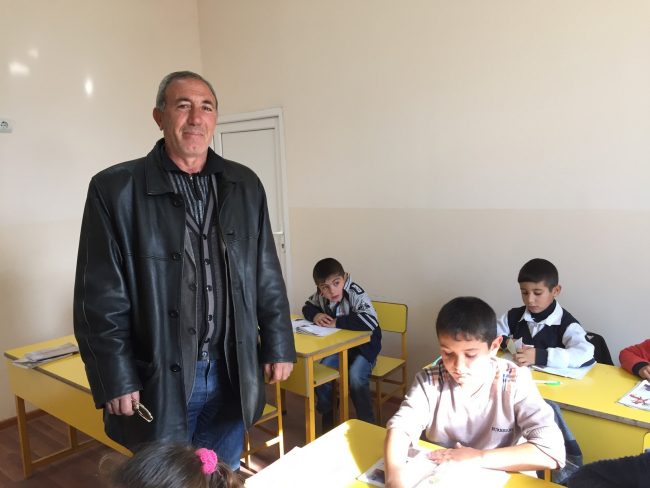
Since parents are legally responsible for the upbringing and education of their children, they will face fines of thirty times the minimum wage (currently ֏55,000 ($115)) if they obstruct their children’s education.
In September, the National Association of Yazidis — Sinjar conducted a survey in Armavir and Aragatsotn provinces to find out how many children were deprived of an education.
‘In six villages of Armavir Province alone, 32 Yazidi children were not attending school, 19 of whom were girls’, Boris Murazi, chairman of the association, says.
Naira Sargsyan, head of the Education, Culture, and Sports Department of Armavir Province, notes that they have begun work to educate parents on the rules. They explain that every child has the right to education, she says, adding that officials have not yet begun fining parents.
‘We must spread awareness that education is necessary. Among these 32, some are girls who have already got married and could not take advantage of their right to an education’, she says.
However, Ferik’s school principal doubts the new law will affect the traditions of the Yazidis. ‘I don’t think that it will affect anything. Even if an administrative fine is imposed, I think they will find a way to fight against this’, Poghosyan says.
Hasan Tamoyan, co-author of several Kurdish-language textbooks for all grades, also doubts the effectiveness of the law alone. He thinks that applying pressure does not always produce good results.
‘Most importantly, our [Yazidi] intelligentsia must participate in this effort. I always say that such people as us must find salvation in education and enlightenment’, Tamoyan says.
An exception to the rule
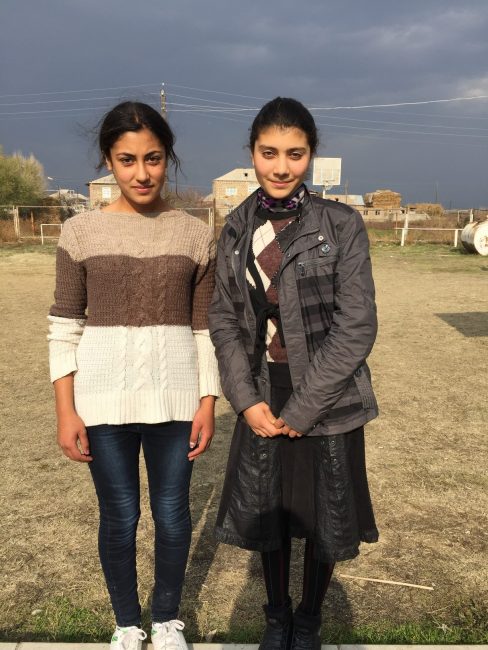
The father of 21-year-old Zuzan Momayan has advised his daughter to study hard since childhood. He told her that obtaining a higher education and becoming an expert was necessary to be independent of men in the future. The family lived in an Armenian village, where he says they could see examples of other families and go beyond the constrictions of their community.
‘When I participate in community events, men I know often say they like educated women, but these same men do not allow their daughters to get an education’, says Zuzan, a journalist.
She adds that an educated bride is for many a sign of her future disobedience.
‘My uncle's daughter, Leyla, she paints beautifully, dreams of becoming a designer, but the family does not allow her [to study]. We are close, and I am her inspiration. Leyla has wings, but she is not allowed to fly’, Zuzan says.
She believes that merely obtaining an education is not enough to break stereotypes in the community. In her opinion, prejudices will be overcome once after marriage, women do not become traditional housewives and stay at home.
‘I became a journalist to publicly raise the problems of the community, to create an open discourse. Whether I marry or not does not matter. Even after marriage, I will continue my active social work’, she says.




 7 December 2017
7 December 2017

